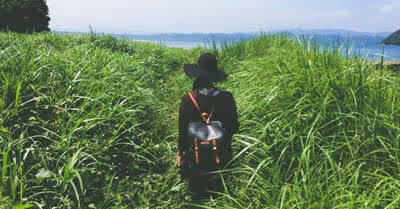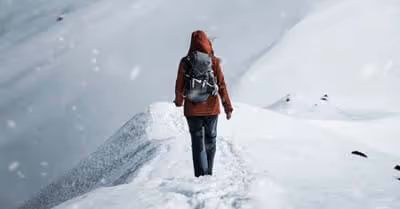Table of Contents
What can happen if you push yourself too hard?
Hiking is great, it is so inclusive to everyone’s abilities. No matter your fitness, age, or experience there is likely going to be a hiking trail that is suitable for you. It is fine to stick to the shorter, flatter, trails when you are a beginner. Everyone starts from somewhere, you will be hiking with the best of them in no time. Some problems can arise if you push yourself too hard too soon. This can lead you to injury or simply turn you off hiking, which is a real shame because hiking is an amazing way to spend your free time.
Illness
Pushing yourself too hard when you are new to hiking and might not have the highest level of fitness can genuinely make you ill. Exhausting yourself can make you more susceptible to illness and injury. Besides, exhaustion and dehydration from hiking further than you were prepared for is an illness all on its own. It takes time for our bodies to adjust to this new form of exercise. It may look like “just walking” but it is so much more than that. Respect your body’s limits and increase your hiking distances over time for the best results.
Injury
Hiking too far is hard work when you start to get too tired an injury could be just around the corner. Pushing your muscles too hard can cause strains and aches that can take weeks or months to recover from. You need to give your muscles time to adjust to this new way of working. Additionally, the more tired you are the more likely you are to slip and fall. This could be as minor as some mild bruising or as severe as broken bones.
Burnout
This may not be as problematic as become ill or injured, but burning out can be just as frustrating for a hiker in making. Burning yourself out mentally can make the idea of hiking less appealing. After all, if someone made you ride a bike until your feet had blisters would you want to jump back on a bike the next week? Probably not. Slow and steady wins the race applies wonderfully to hiking.
How many miles should a beginner hike?
How many miles you should hike is a far more nuanced question than you might originally have realized. It depends so much on what your current fitness and ability level is. If you are an active person who hits the gym twice a week you could probably hike 8 miles quite comfortably for your first time. If you are new to hiking and are using it as a way to get fitter, then you may want to hike less.
The best way to find your limit is to see how far you can walk comfortably around town. If you find yourself starting to get quite tired and sore after a 2-3 mile walk through town, you will want to stick to a short hike. Hiking is more strenuous than walking so if you find your limit when walking and then divide that by two you will have a decent estimate of your optimal hiking range. For example, if you find yourself starting to become very tired after a 10-mile walk then 5 miles of hiking is the best range for you. You can gradually increase your range each time eventually going on to do longer hikes, even multi-day ones should you wish.
If you are new to hiking you may be unsure how to measure your distances. There are a few ways. You can use a smartwatch/pedometer to keep track of your distance walked. You can also use trail markers while hiking to gauge how far you have gone. One of the traps beginners get caught by is setting out on a “5-mile hike” but it is a 5-mile hike each way. Many trail markers will explain the total distance there and back, or if it is part of a circuit. But they occasionally won’t. Additionally, you may not feel comfortable doing the entire hike and only wish to do part of it. This is why having a pedometer with you can be so beneficial. If you set yourself a goal of 5 miles when your pedometer says 2.5 miles walked you know it is time to turn back.
When can I start hiking longer distances?
You could start increasing your hiking distances almost immediately. If you feel good about the short hike you just went on perhaps try adding 1 mile to your next hike. Keep adding a short amount of distance to each hike until you feel you have reached the length you feel happy with. Remember, hiking isn’t about walking as far as possible. If you would rather do multiple shorter hikes over the course of a week rather than one long one, that’s completely fine. Hiking does not need to be competitive, do what you feel comfortable with.
Conclusion
Hopefully, this article has given you a clear idea of how far a beginner should be hiking. There is no one size fits all distance for beginners as everyone has different abilities. Use trial and error to find the right distance and stick with it. Over time as your fitness levels increase and you begin to feel braver you can start increasing your mileage. Hiking isn’t a race either; if you feel like taking an hour break halfway through your hike and that will allow you to increase the total distance, go for it!
Recent Articles
















